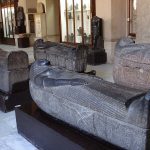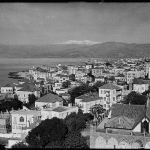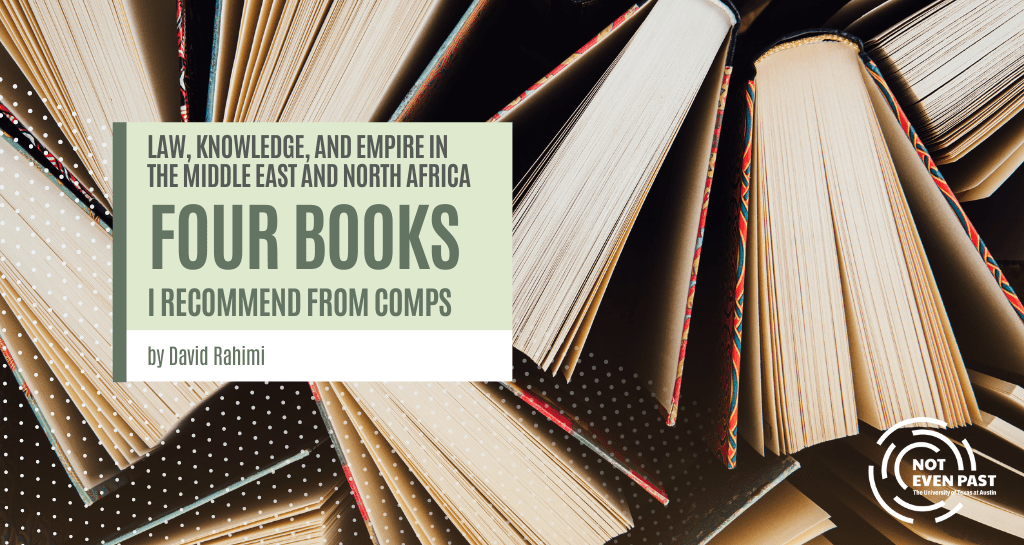
by David Rahimi
Before moving to the final dissertation stage of the PhD, graduate students in History must first pass their comprehensive exams (also known as orals, qualifying exams, or comps). These are designed in part to show mastery of a student’s chosen teaching and research fields. Experiences vary depending on how the student and their committee members hope to use comps, whether it be preparing for teaching fields or laying extensive historiographical groundwork for the dissertation. Most students describe the typically year-long affair and its final moment as stressful, taxing, and sometimes surreal. It took me three days to process fully that I had passed the oral and written examinations even though the committee tells you immediately whether you did or not. Still, there are plenty of bright moments during comps. You will likely have few better opportunities to immerse yourself in so many incredibly varied books in your career at once. Comps is great time to savor the breadth and depth of past and present scholarship, its peaks and valleys, and conceive how you see yourself joining these conversations.
I completed my own comps in Spring 2019. I spent the preceding year reading 363 books and a few articles in the histories of Iran, the Middle East, the British Empire, and the French Empire in North Africa. The following books are recommended not necessarily because I agree with everything in them, but because they have an ability to speak beyond their own field and encourage refining one’s own thoughts on critical concepts and categories of analysis.
1. Burke III, Edmund. The Ethnographic State: France and the Invention of Moroccan Islam. Oakland: University of California Press, 2014.
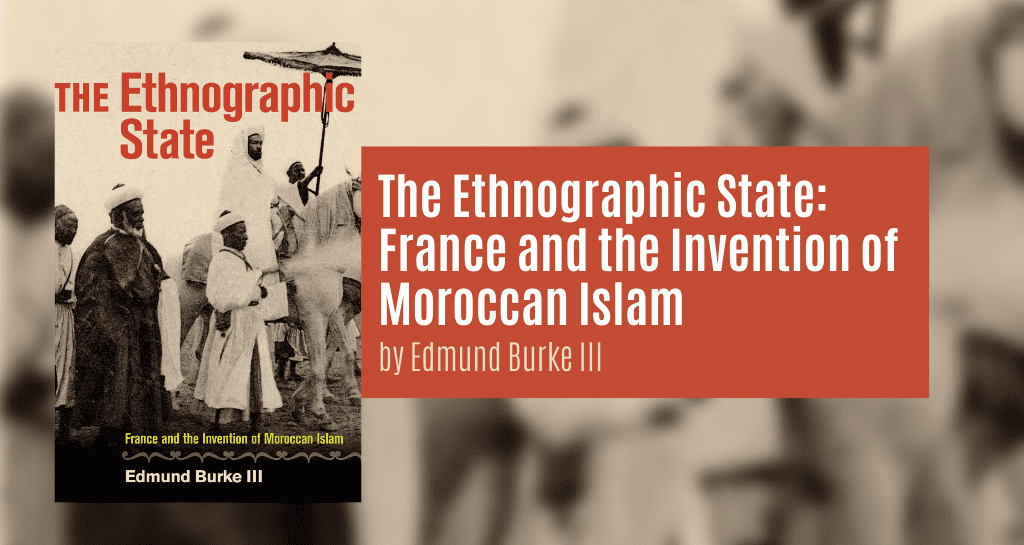
The Ethnographic State explores the creation of the Moroccan archive, understood here as anything written in French about Morocco and its inhabitants from 1880-1930, which organized knowledge into categories meant to give the French power and control over society. Its chief product was the reified analytical construct of “Moroccan Islam”. Moroccan Islam emphasized the Moroccan monarch’s titles of sultan, khalifa, and imam alongside the monarch’s magico-religious powers. This and the other categories of knowledge served a new “scientific imperialism” that relied on a form governmentality of intelligence gathering and expertise. In unpacking the Moroccan archive, Edmund Burke argues that Orientalism itself has a history, disagreeing with Edward Said and Michel Foucault that such a discourse can be completely totalizing, since this makes it difficult to explain multiple episodes of Moroccan resistance and also the discursive crisis among the French between 1900-1904. Edmond Doutté (at least in his early writing) and Eugene Aubin rejected overly simplified and dichotomized views of Moroccan society. They saw order where others might see chaos in Moroccan Islam and society. Still, the Orientalist stereotypes eventually won out, as typified in French scholarship which depicted an “eternal struggle” between Arab royal authority and lawless Berber dissidents that needed French management (81). French knowledge proved quite illusory, often undone by its own republican and militant laicite assumptions as seen in its repeated inability to foresee popular opposition from the ‘ulama and lower classes allied against the French system.
2. Cuno, Kenneth. Modernizing Marriage: Family, Ideology, and Law in Nineteenth- and Early Twentieth-Century Egypt. Syracuse: Syracuse University Press, 2015.
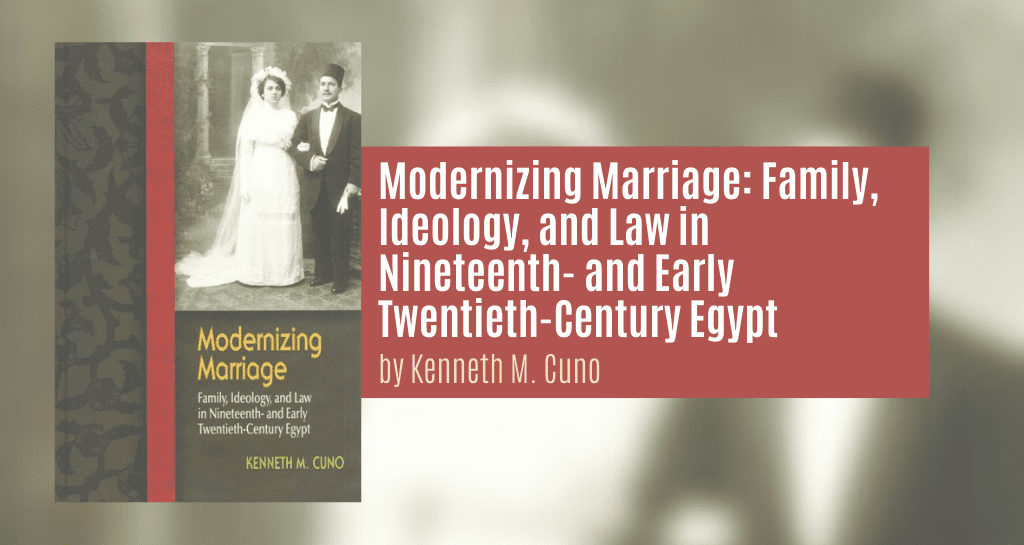
Modernizing Marriage pushes back against the received opinion that negligible change occurred in Egyptian family life and structures before World War I. Kenneth Cuno, instead, argues that significant, incremental changes took place in portions of the middle and upper classes that widely influenced Egyptian society between 1847 and 1920. Emerging from data drawn from censuses, demographic sources, archives, and juridical literature, the text identifies key shifts including the idealization of companionate marriage, greater demands for women’s education, and an emphasis on the nuclear family as the building block of society and the state. These ideas owed much to the Enlightenment and local Egyptian debates about family life rather than to European criticisms or so-called traditional, Islamic values. Precolonial Islamic jurisprudence saw the family as patrilineal, placed little emphasis on the role of children, and did not stress an ideology of domesticity for women as in the West. These debates and changes took place within a process of Hanafization, which refers to how law codes became standardized according to a new synthesis of Hanafi legal thought that borrowed from the other three Sunni legal schools. New reference manuals like Muhammad Qadri Pasha’s 1875 code reflected the transformation of Muslim family jurisprudence into positive law in a process that speaks to other colonial spaces like in British India and French North Africa. Rigid, legal codification, which made Muslim family law comprehensible to foreigners and Egyptians trained in the French legal tradition, replaced the flexibility of older Islamic and customary legal customs and practices, with mixed results for women overall.
3. Darwin, John. The Empire Project: the rise and fall of the British World System 1830-1970. Cambridge University Press, 2009.
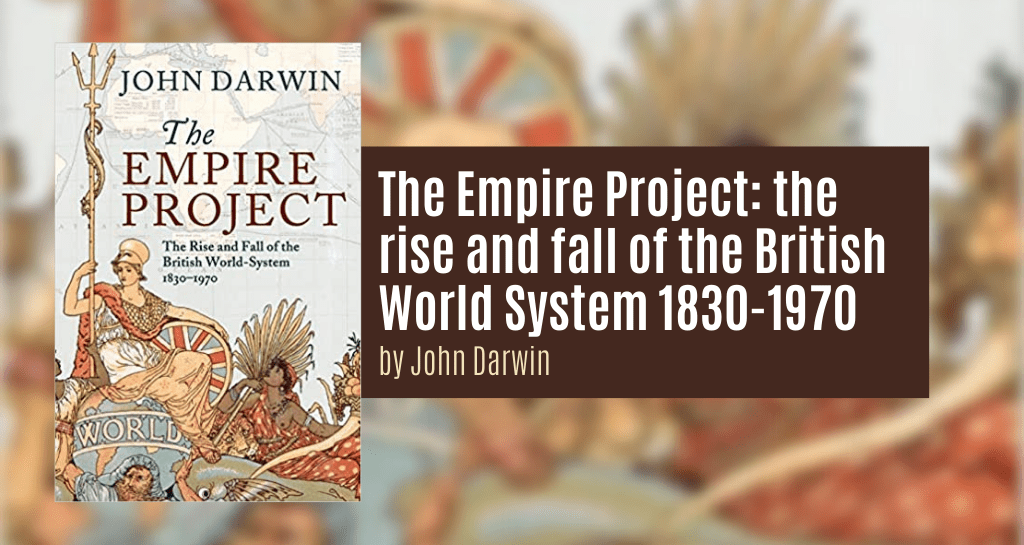
The Empire Project is a long, ambitious treatment of two daunting and complex questions: what exactly was the British Empire of the nineteenth and twentieth centuries, and what accounts for its successes and ultimate unraveling? John Darwin presents both a readable and thought-provoking account of a tricky subject. Darwin uses the term world-system over empire, preferring the way it captures the often fraught commercial, demographic, military, and communicative interdependence of Britain’s imperial domains. While empire-making is often associated with some planned strategy, world-system helps better reflect how “British expansion was driven not by official designs but by the chaotic pluralism of British interests at home and of their agents and allies abroad” (3). This British world-system required specific conditions to flourish: a passive East Asia, a European balance of power, and a strong but non-aggressive United States. The most devastating moment for Britain’s world-system came between 1938 and 1942 amid the Great Depression, increased tariffs, and more anti-free trade policies that hindered the empire’s economic wellbeing. The Second World War finally shattered all of the necessary conditions as the United States steadily – and somewhat begrudgingly at times – assumed Britain’s mantle even as Labour tried building a new, more democratic, and development-minded world-system. The 1956 Suez debacle plus the crushing financial costs and pushback from colonial nationalists and new local interests alongside shifting Cold War power balances, however, revealed that Britain could no longer influentially act unilaterally or in small alliances as it once had.
4. Najmabadi, Afsaneh. Professing Selves: Transsexuality and Same-Sex Desire in Contemporary Iran. Durham: Duke University Press, 2014.
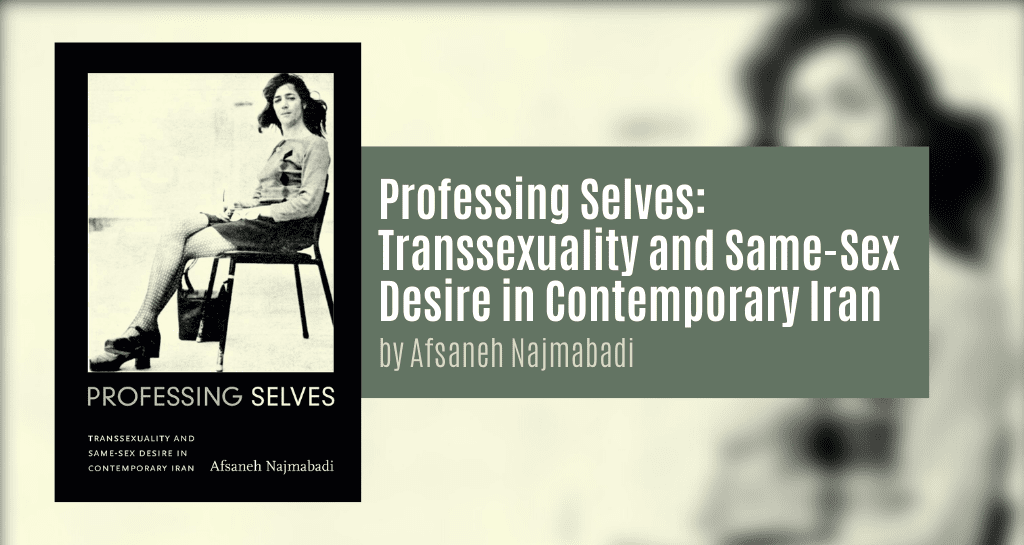
Professing Selves is a pioneering work on transsexuality under Muhammad Reza Shah and the Islamic Republic of Iran. This largely sociological and ethnographic book considers how sexual and gender subjectivities were shaped by a cultural-legal context that shamed and criminalized homosexual desire and practice, while permitting and subsidizing transsexuality. Additionally, it examines how persistent state regulations and religio-cultural codes and rituals regarding acceptable gendered behavior and comportment impacted these subjectivities. Historian and sociologist Afsaneh Najmabadi emphasizes technical and vernacularized biomedical, psychological, legal, and religious discourses of the 1940s to 2000s, such as Ayatollah Khomeini’s 1984 fatwa permitting sex-changes. Combined with a growth of new institutions like the Tehran Psychiatric Institute, these discourses served to set some guiding boundaries between acceptable trans persons and purportedly deviant homosexuals. Ultimately, Najmabadi argues that challenges for non-heteronormative persons in Iran come more from social and cultural norms, such as an imperative to marry, rather than from the state. The issue of whether one is trans or homosexual “becomes a question of not some inner truth but of figuring out and navigating one’s relationship-in-conduct vis-à-vis others” (298).
David A. Rahimi is a PhD candidate in the History Department at the University of Texas at Austin. His current research focuses on the growth of consumer capitalism and its impact on daily life in Iran during the reign of Muhammad Reza Shah (1941-1979). He is particularly interested in how Iranian and foreign development programs and NGOs, like the Franklin Book Programs, helped promote institutional and structural changes in society and the economy. Originally from the northwest suburbs of Chicago, David graduated summa cum laude from the University of Illinois at Urbana-Champaign with a B.A. in History and Political Science in 2014. He received his M.A. in Middle Eastern and South Asian Studies from the same institution in 2016.
The views and opinions expressed in this article or video are those of the individual author(s) or presenter(s) and do not necessarily reflect the policy or views of the editors at Not Even Past, the UT Department of History, the University of Texas at Austin, or the UT System Board of Regents. Not Even Past is an online public history magazine rather than a peer-reviewed academic journal. While we make efforts to ensure that factual information in articles was obtained from reliable sources, Not Even Past is not responsible for any errors or omissions.
